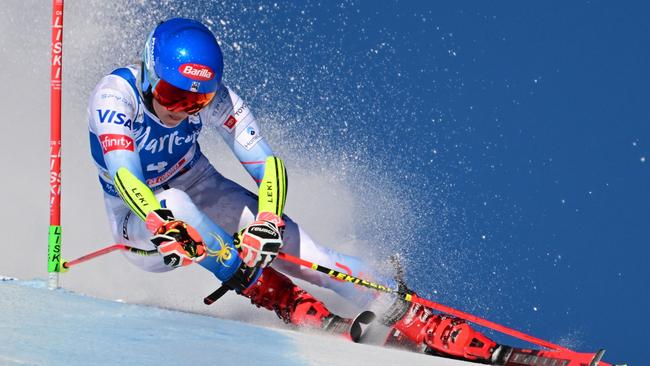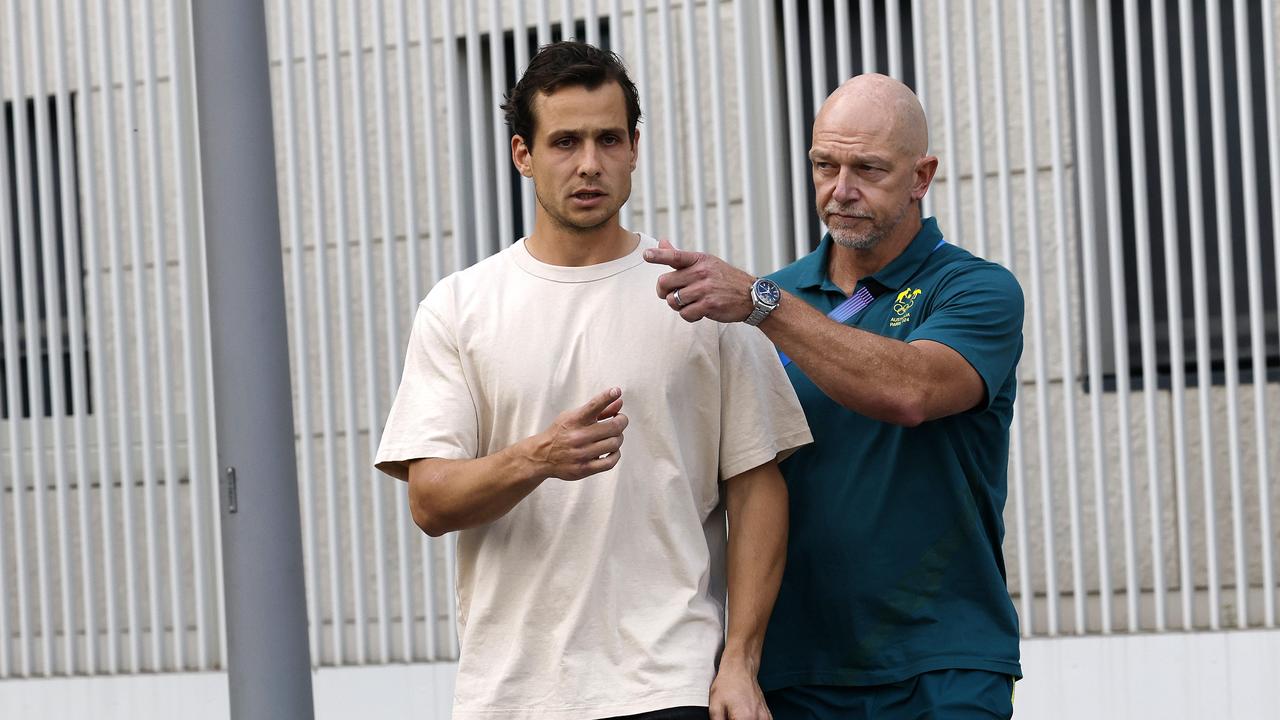If you can’t move the mountain, move the medal podium
Weeks before last year’s pandemic-delayed, sweltering Tokyo Olympics, Mikaela Shiffrin was already thinking about frigid winter nights.

Weeks before last year’s pandemic-delayed, sweltering Tokyo Olympics, Mikaela Shiffrin was already thinking about frigid winter nights.
Shiffrin, the top alpine skier in the world, was worrying about the 2022 Beijing Games. Specifically, the American was recalling the lengthy trip from the slopes at the 2018 Olympics in PyeongChang, South Korea, to the medals plaza where she accepted the gold in giant slalom — then got to bed hours late.
The next day in slalom, her most dominant event, Shiffrin finished fourth.
So when Shiffrin saw that skiing medals were to be awarded in a central plaza in Beijing, a potential hours-long round trip from the mountain, she went to work. Shiffrin called US Olympic and Paralympic chief executive Sarah Hirshland and voiced her concern. Hirshland then made clear to Dexter Paine, an American on the council of the international ski federation (FIS), that Team USA supported holding alpine medals ceremonies in the mountains.
FIS, which also had heard concerns from other skiers, added the topic to its June meeting agenda. Even though the IOC had argued during the Olympic bid process for a central medals podium, saying separate plazas could detract from the ceremonies’ atmosphere, the podium for skiing was moved. Alpine medals will now be awarded at the Yanqing Olympic Village, where skiers will compete and stay.
Shiffrin wasn’t the only athlete who wanted to move the podium. But she is perhaps the most influential skier in the world. And the issue of medals ceremonies affects her more than most: She aims to compete in five events and make up to five trips up those spotlighted steps. So there she was, nine months ahead of the Olympics, plotting her schedule hour by hour.
“I have not always been a planner — OK, I have been,” Shiffrin said. “But I’m quite a lot more extreme now.”
The Beijing Games might be the most unpredictable Olympics ever. Few elite skiers have set foot on the slopes in China, an unusual winter-sports site. Athletes will be restricted to Olympic venues and their lodgings to curb spread of the coronavirus.
As the Omicron variant rages, the only athletes who aren’t desperately trying not to contract Covid-19 are those like Shiffrin — who recently registered Covid infections and now are monitoring to ensure that traces of it are gone before they enter Beijing’s “closed loop”.
A partial list of questions Shiffrin had months ahead of the Games included: Will athletes be allowed to eat in the dining hall, given Covid precautions? Will plastic gloves or hand sanitiser be available to pick up food, or will there be a place nearby to wash hands? Do the windows in her room open? Is the room temperature controllable? What are the window shades like?
Shiffrin keeps track of her questions and schedule on a laptop. “It’s actually been great for my logistics and planning skills,” she said. “But it’s also probably not that great for stress levels. Because sometimes just looking at a to-do list or a plan or schedule, I just start sweating.”
Four years ago in PyeongChang, a combination of Shiffrin’s ambitious five-event plan, the far-flung medals plaza and high winds scrambled her schedule, prompting her to drop out of the downhill and super-G races. Her planning is designed mostly to protect her body — from transmissible germs (not just Covid), from light and cold and heat that might delay sleep, from fatigue.
“We try to limit her number of steps per day, because we’re ultimately trying to keep her as fresh as possible to compete with a big schedule,” said Shiffrin’s coach, Mike Day. “That goes as far as, What floor is she going to be staying on? Ensuring there’s elevators. How far from the elevators is she staying?”
Shiffrin acknowledges she has shouldered a greater responsibility for the details of her career and life since February 2020. That’s when her father, Jeff, died in an accident at home in Colorado.
“Ultimately, Jeff Shiffrin really managed the business side of Team Shiffrin,” Day said. “He was the detail guy. He was the one doing the finances and all those things. Mikaela and Eileen (Shiffrin’s mother) have taken that on and I think that that’s been a big learning experience and a huge learning curve and they’ve done an amazing job with it.”
Wall Street Journal



To join the conversation, please log in. Don't have an account? Register
Join the conversation, you are commenting as Logout